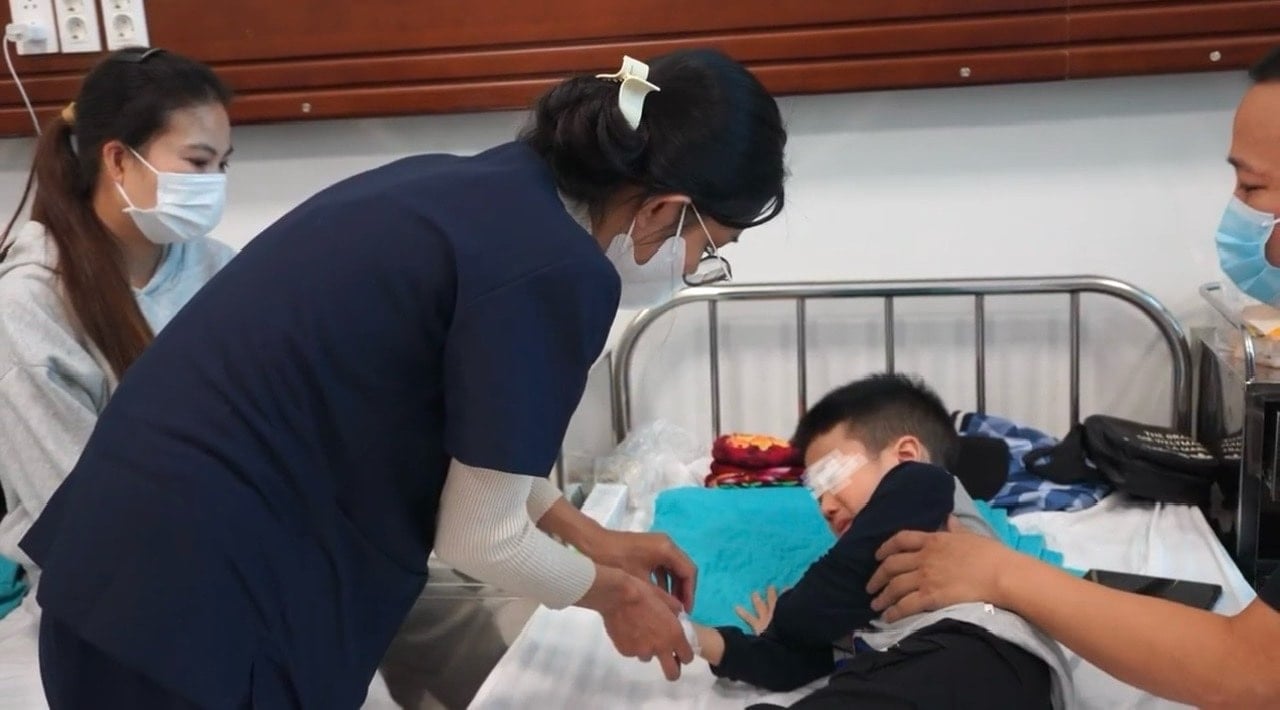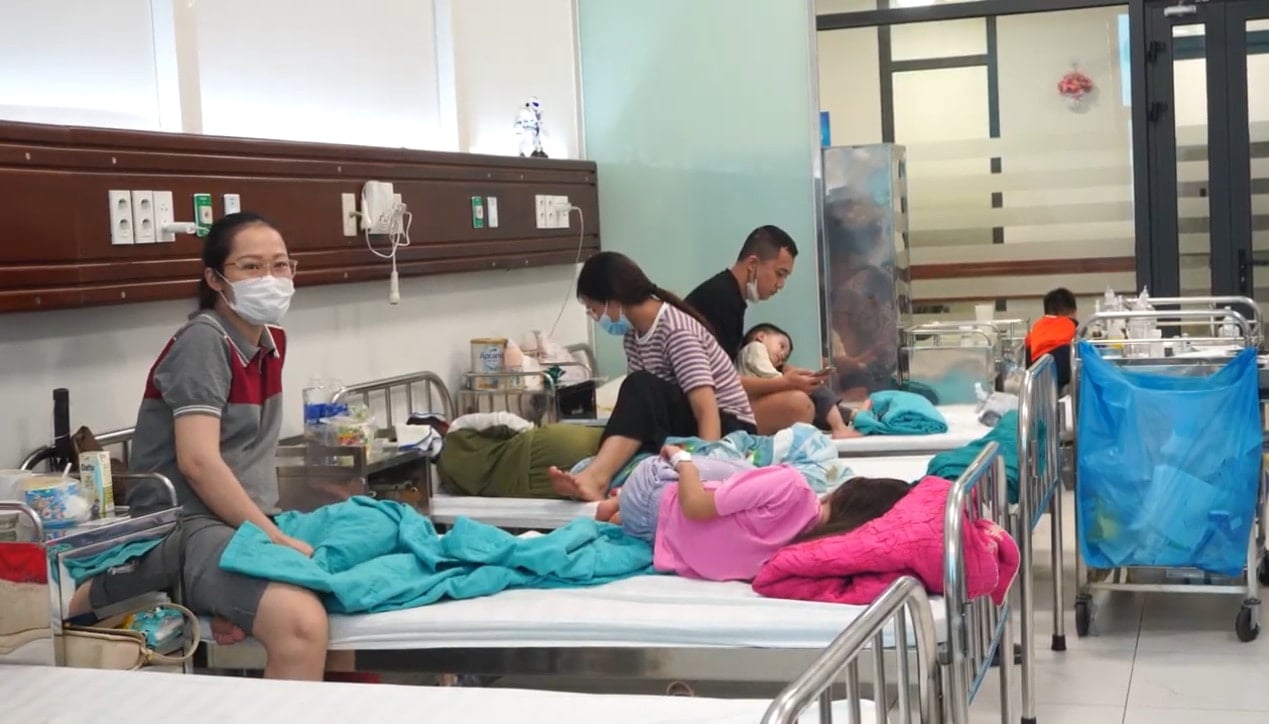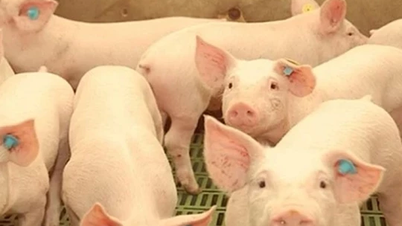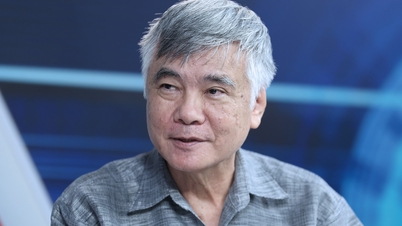
Influenza A can easily lead to dangerous complications.
At Hanoi Children's Hospital in recent days, the number of recorded flu cases has tended to increase; in particular, there are many cases of severe influenza A.
After more than 20 days of treatment for influenza A, baby BA (4 years old, in Hanoi) has overcome the danger, his health is stable, but he still has mental and motor sequelae. The child is still being closely monitored.
According to the family, the child was completely healthy, the child only started with a fever and a cough. However, after just 1 day, the child developed a high fever and had convulsions lasting 5-7 minutes. The family took the child to a nearby hospital and tests showed that the child had influenza A. After the convulsions, the child became lethargic and was transferred to Hanoi Children's Hospital.
At the Intensive Care Unit of Hanoi Children's Hospital, the child was resuscitated and had his vital functions stabilized. The child was diagnosed and treated according to the encephalitis/flu A protocol, a rare but extremely dangerous complication that can be life-threatening and carries the risk of severe sequelae.
Also hospitalized with influenza A, a 9-month-old patient being treated at the Infectious Diseases Department, Hanoi Children's Hospital suffered complications of pneumonia, high fever and convulsions.
The patient's father said that after 2 days of treatment, the child's fever had subsided, but he was still fussy. Children with influenza A are susceptible to dangerous complications, which can happen quickly, so parents should not treat their children at home on their own, but should take their children to the doctor early, especially during the current influenza A epidemic.

According to Hanoi Children's Hospital, currently, the hospital records nearly 10 cases of influenza A that require hospitalization every day. Most of the children admitted to the hospital have high fever and cough; many children have complications of pneumonia, even convulsions, encephalitis...
This is the transitional season, flu viruses are easily broken out and spread strongly, especially influenza A, people need to be extremely vigilant to prevent disease.
Regarding the diagnosis of influenza A, Dr. Dang Quang Nhat, Department of Infectious Diseases, Hanoi Children's Hospital said: "Usually, to diagnose influenza A, we can rely on epidemiological factors such as: Children have contact with people with influenza A, have symptoms such as continuous high fever, cough, sneezing. Children will be tested quickly to diagnose influenza, if the result is positive, they will be diagnosed with influenza A. Children with continuous high fever, signs of respiratory tract infection need to go to medical facilities for timely treatment."
According to doctors, for children, influenza A is not simply seasonal flu, but can lead to dangerous complications. Although the flu in children is mostly mild, some cases can cause dangerous complications, such as: severe pneumonia, myocarditis, encephalitis, respiratory failure, multiple organ damage... In particular, young children, people with underlying diseases, and immunodeficiency are at high risk of severe complications when infected with the flu.
Proactive disease prevention, vaccination
According to Dr. Dang Quang Nhat, influenza, especially influenza A, is quite dangerous for children, so parents need to proactively prevent the disease for their children, especially at the present time. In cold weather, children need to keep their bodies warm, ensure nutrition and get enough sleep; wash their hands regularly, wear masks when going to crowded places. In particular, when children show signs of high fever, severe cough, fatigue or convulsions, drowsiness, they need to be taken to a medical facility immediately, do not arbitrarily use fever-reducing or antiviral drugs at home to treat the flu.
Hanoi Children's Hospital also warns that if you are subjective about the flu, the consequences can be very serious. Active vaccination, close monitoring and proper treatment are the keys to protecting children during the current epidemic season.
Accordingly, it is necessary to vaccinate children against the flu every year, especially children under 5 years old and people at high risk, to create an immune shield against the disease and prevent serious complications.
Regarding the current flu vaccines, Dr. Le Thanh Khoi, head of the Medical Council of the Long Chau Pharmacy System and Vaccination Center, said: "Currently, there are 4 types of flu vaccines for adults that are licensed for widespread circulation in Vietnam: Influvac Tetra vaccine (Netherlands), Vaxigrip Tetra vaccine (France), GC FLU Quadrivalent vaccine (Korea) and Ivacflu-S vaccine (Vietnam)".
Specifically, Vaxigrip Tetra vaccine (France) is one of the popular flu vaccines for adults in Vietnam; this vaccine can prevent flu caused by 4 strains of influenza virus including: 2 strains of influenza A (H1N1, H3N2) and 2 strains of influenza B (Yamagata, Victoria) and is vaccinated for children 6 months of age and older and adults.
Influvac Tetra vaccine (Netherlands) is an inactivated vaccine researched and produced by Abbott - Netherlands. This vaccine helps prevent influenza caused by 4 strains of influenza including 2 strains of influenza A (H1N1, H3N2) and 2 strains of influenza B (Yamagata, Victoria), indicated for children 6 months of age and older and adults.
GC FLU Quadrivalent vaccine (Korea) is an inactivated vaccine containing antigens isolated from two influenza A strains (H1N1, H3N2) and two influenza B strains (Yamagata, Victoria) to effectively prevent influenza; indicated for children 6 months of age and older and adults.
The Ivacflu-S vaccine produced in Vietnam is one of the influenza vaccines for adults, contraindicated for pregnant women. This is an inactivated vaccine researched and produced by the Institute of Vaccines and Medical Biologicals (IVAC Vietnam). This vaccine helps prevent influenza caused by 3 strains of influenza A(H3N2), influenza A(H1N1), influenza B (Victoria/Yamagata) and is indicated for children 6 months of age and older and adults.
Regarding the current combined injection of influenza and pneumococcal vaccines, according to Dr. Le Thanh Khoi, there is currently no vaccine that has been formulated to combine both influenza and pneumococcal vaccines in the same injection. However, according to the World Health Organization (WHO), injecting multiple vaccines at the same time does not cause any adverse side effects on the immune system of the person being vaccinated. People can completely inject influenza and pneumococcal vaccines at the same time during the same visit, just inject in different locations (such as two arms, or two thighs) and use separate syringes.
Source: https://baohaiphong.vn/nhieu-tre-mac-cum-a-bien-chung-nang-chuyen-gia-chi-cach-phong-tranh-526151.html




![[Photo] Prime Minister Pham Minh Chinh chairs a meeting on housing policy and the real estate market.](https://vphoto.vietnam.vn/thumb/1200x675/vietnam/resource/IMAGE/2025/11/11/1762838719858_dsc-2107-jpg.webp)
































































































![Dong Nai OCOP transformation: [Article 4] Reaching national standard products](https://vphoto.vietnam.vn/thumb/402x226/vietnam/resource/IMAGE/2025/11/11/1762825820379_4702-cac-san-pham-trai-cay-chung-nhan-ocop-nongnghiep-174649.jpeg)



![Dong Nai OCOP transition: [Article 3] Linking tourism with OCOP product consumption](https://vphoto.vietnam.vn/thumb/402x226/vietnam/resource/IMAGE/2025/11/10/1762739199309_1324-2740-7_n-162543_981.jpeg)






Comment (0)